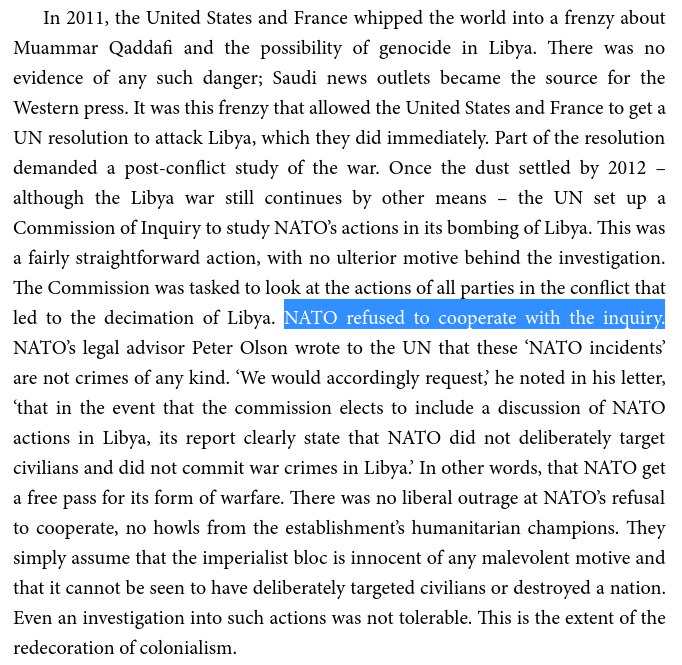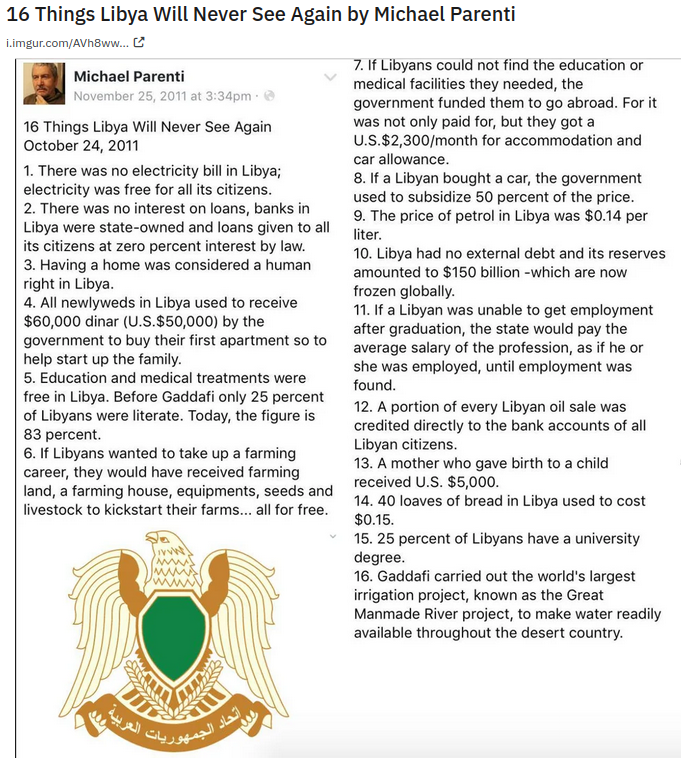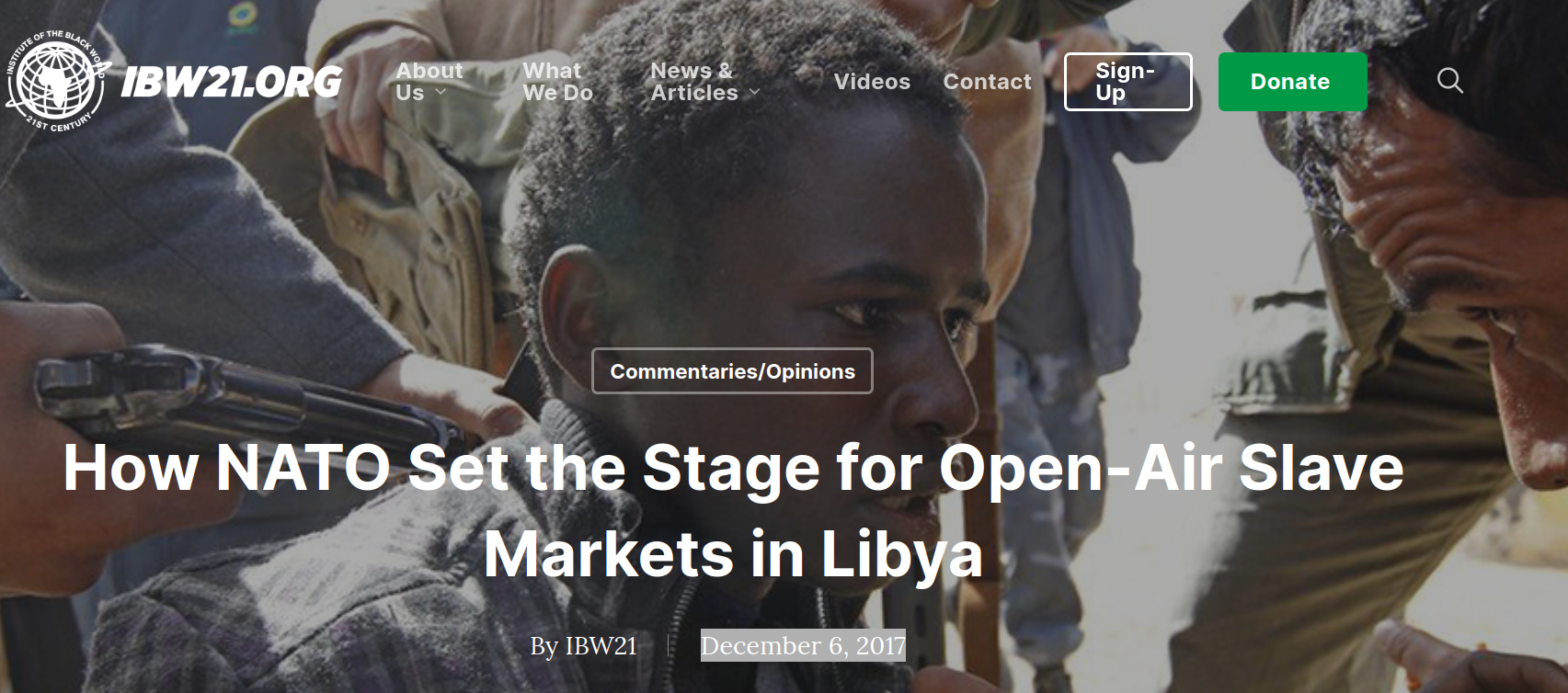https://sh.itjust.works/post/4274675
To this I say, no. As a community, we do not deny proven genocides, like the holocaust, or the genocide against indigenous Americans by various European colonizers, or the genocide against the Congolese by Belgium, or the Bengal famine that was carried out by the British empire. In fact, denying those genocides will get you banned, here. However: we are also aware of a tendency of nations to project their crimes onto others, and to manufacture atrocity propaganda to justify overthrowing or destroying rival governments... like Libya in 2011:
From Washington Bullets by Vijay Prashad (a great book I highly recommend)

A post from Michael Parenti regarding the destruction of Libya by NATO-backed reactionaries

A headline shortly after Libya's destruction by NATO-backed reactionaries

The US government has been reenacting the fable of the Boy Who Cried Wolf, and has been cynically leveraging the very serious accusation of genocide against its geopolitical enemies. This is the source of skepticism on Xinjiang. And this is not a new strategy, yes, the Holodomor, which everyone in the US has been taught to take seriously lately, is a nazi fabrication first spread to the United States in the works of Robert Conquest. Why would the USSR deliberately starve a fellow socialist Republic? Why would Stalin, a Georgian, have some kind of Russian chauvinist grudge against Ukrainians? Why would Lenin (Donbass), Stalin (Lviv), and Khruschev (Crimea) all expand the territory of the Ukrainian SSR while also trying to kill off the people inside of it? Why would the USSR ethnically cleanse Ukrainains while simultaneously sending food aid to the starving British colony in Bengal? Natural famines and crop failures were spun by the nazis into atrocity propaganda. Also, a state does not have to be perfect to be defended against false accuations. I think China is far from perfect, but the burden of proof is on the United States to prove its accusations (which have changed in scope several times) regarding Xinjiang. Delegations from Muslim majority nations visiting Xinjiang do not agree with the United States that there is a genocide of the Uyghur people. There is however an attempt to reeducate extremist groups like ETIM. Reeducating extremists might seem a harsh government policy, but I assure you it is a better way of dealing with religious fundamentalism than drone striking weddings or air striking hospitals like the USA did in Afghanistan.


Even Stephen Kotkin (the lib), who is a highly esteemed academic historian (professor at Princeton), said what happened in Ukraine in the 30s wasn't genocide in his Stalin biography. The only revisionism that's happening here is libs pretending that there is a consensus about calling it a genocide among academic historians.
Stalin: Waiting for Hitler, 1929-1941 by Stephen Kotkin published in October 2017 by Penguin Random House
Here's Mark Tauger's takedown of Applebaum's Holodomor book:
Even Robert Conquest amended his position after the release of the Soviet archives that the Soviet famine of the 1930s wasn't genocide.
Who cares about academic historians? A bunch of woke nerds if you ask me. The EU parliament voted that the Holodomor was real and a genocide so anyone who says otherwise is denying genocide and spreading misinformation.